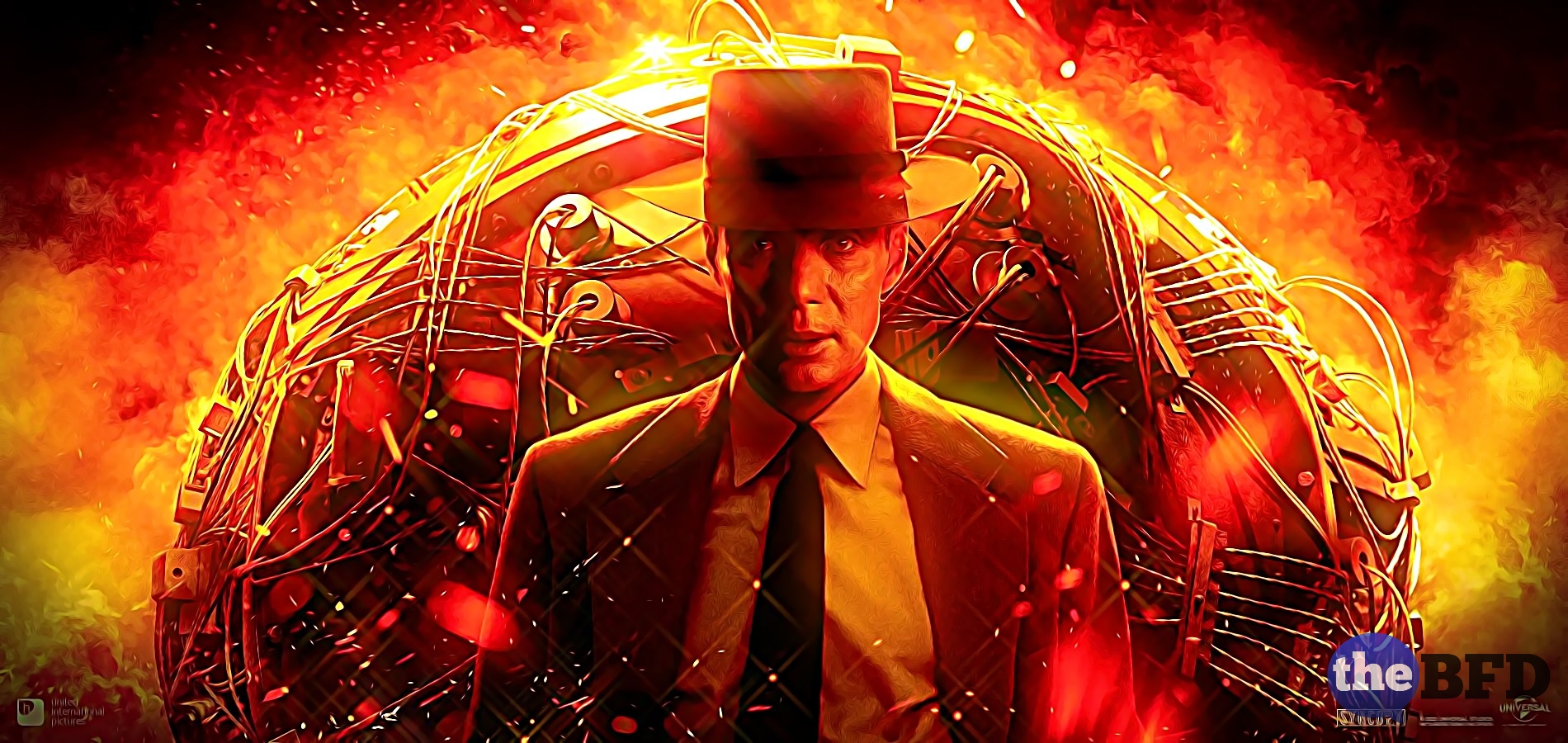At a recent viewing of the movie Oppenheimer I found myself distracted by dancing lights appearing in my peripheral vision. Fearing the onset of a brain haemorrhage or worse, some malfunction in the IMAX screen that would render the exorbitant ticket price a waste, I looked to my left. Barely ten minutes in, a Zoomer girl, tapping at her phone, was finding the delights of cyberspace preferable to what was on the screen.
My middle-aged despair at the vapidity of youth gave way, on post-cinema reflection, to understanding. What value would history have to a youngster immersed in the eternal present of the mobile phone scroll? Why would she care about what had come before her, when her school and the media insist now is the apex of all ages and the past is but a catalogue of the sins of straight white men?
If she’d looked up from her phone to the screen she might have found the answers.
As Matt Damon’s character General Groves yells at one point in the film, “How about because this is the most important f***ing thing to ever happen in the history of the world!” (Something I would have dearly liked to shout at my Zoomer friend).
Christopher Nolan’s Oppenheimer is a brilliant but flawed film that nonetheless does something rare and refreshing: intelligently presenting history as great events driven by great men. Its subject is not just Oppenheimer himself but the event for which he will be forever known – the creation of the atom bomb at Los Alamos in 1945. It’s technically outstanding – the sound design in particular. The stomping feet of an audience delirious with victory after the Hiroshima bombing merging with the awesome rumble of the successful Trinity bomb test; the use of dead silence after the same test, giving the delayed sound waves an amplified impact. The cast is filled with A-listers, with the lead Cillian Murphy surely up for an Oscar. It must be difficult to capture the interiority of genius but Nolan and Murphy manage it with a lot of smoking and staring out of windows. Murphy’s face somehow captures the ambiguous emotions the real man no doubt felt about unleashing such a destructive force.
Where the film falls down for me is in the third act where it gets bogged down in labyrinthine machinations in back rooms and an uncinematic talkiness. Beyond this, my gripe is not about what is in the film but the things Nolan leaves out.
Much is made of the race to build a nuclear bomb before the Nazis did. Understandably, given Oppenheimer’s Jewish background, this is emphasised as his motivation. However, when Germany surrenders, an ignorant cinema goer (my Zoomer friend) would be forgiven for concluding the US later dropped the bombs on Japan out of either great power chest-beating or pure sadism.
But they would be very wrong. Despite the efforts of some Left-wing revisionists, the decision to drop the bombs remains entirely defensible. Consider the following: the estimated cost in American lives for an invasion of Japan was such that over 1.5 million Purple Heart medals were manufactured, the surplus still being used to this day. And for those who say Japan was ‘about to surrender’ the fact remains that even after the bombs were dropped the Japanese war cabinet was split for days on whether to surrender – an impasse only broken by the intervention of Emperor Hirohito. Even then there was an attempted coup by military wingnuts who wished to continue fighting. Terrible as it was, the bombs saved lives, Japanese as well as American, not to mention many of those under occupation in a Japanese Empire that had already killed over 6 million civilians.
Also missing from Oppenheimer is context for the ‘Red Scare’ to explain why his early communist associations (he was never a party member) caused him so much trouble later with the US authorities. A brief mention of the traitor physicist Klaus Fuchs does not make it clear the scale of the spying that went on at Los Alamos, with two other spies, David Greenglass and Ted Hall, ensuring that the Soviet Union got the bomb four years later.
Hollywood is not known for honestly depicting the threat of communism.
I have no idea of Nolan’s political leanings but, judging from his earlier films, he at least acknowledges political complexity. In The Dark Knight Rises Bane’s revolutionaries raging through Gotham are depicted as just as degraded as the one percenters they are revolting against.
In Oppenheimer, Nolan refuses to bow to the diversity gods – minority characters are absent, and women, as one outraged Guardian reviewer put it, are given “cursory treatment”. Not because he’s a misogynist but because he is interested in historical accuracy.
Nolan refuses to trade in the fantasy Marvel movie version of history that the Zoomers are being fed. Great men, in the characters of Groves and Oppenheimer, face complex profound problems and make the best choices they can.
The post-war Pax Americana that my Zoomer friend and I still enjoy suggests they were the right ones.

